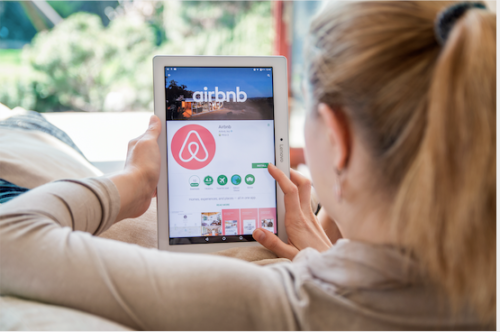At the Tuesday, Dec. 4 meeting the Greensboro City Council delayed the implementation of the short term rental ordinance to April 1, 2024.
What the city calls “short term rentals” are the Airbnb and VRBO type rentals that have become extremely popular in the US and around the world but are currently not specifically regulated by the City of Greensboro.
The ordinance passed on May 23, 2023 was to go into effect on Jan. 1, 2024. According to the agenda, the delay was requested, “Due to the complexities of the final adopted ordinance, the time to solicit and select the necessary 3rd party vendor and the time needed to inventory all Short Term Rentals and create and implement the required permitting system.”
The press release states that one of the reasons for the delay was “so owners/operators have more time to prepare,” but that is not mentioned in the information that was provided to the City Council in support of the delay.
The good news for estimated 700 current short term rental operators is that they will be grandfathered and won’t have to comply with the regulations. Officially it is called “nonconforming” status but it means they can continue to operate as they have as long as they apply for and receive a zoning permit after April 1.
And if short term rental operators or perspective operators want to get a jump on getting that zoning permit, they can’t, which is one reason the implementation of the ordinance is being delayed.
The FAQ from the city states, “Currently, there is no way to request and receive a zoning permit for short term rental.” The plan is that between now and April 1 the mechanism to get the required permit will be put in place.
The regulations that new short term rentals will have to comply with starting April 1 include:
- Rentals are only allowed in residential dwelling units.
- They must be separated from other short term rentals by 750 feet (measured from property lines) if located in a single-family dwelling or two-family dwelling (duplex or twin home).
- No more than one dwelling unit or 25 percent of dwelling units within a multifamily building can be used for a short term rental.
- A maximum of two adults are allowed per rented bedroom.
- No publicly announced or promoted events that involve more than two times the number of guests are allowed in a short term rental.
- No exterior signs advertising a short term rentals are allowed.
- Hosts of “whole house” short term rentals must be located in Guilford County or an adjacent county. These hosts must also post their contact information in a prominent location within the rental space and be readily accessible throughout the rental period.
- Parking is limited to one car per bedroom rented and parking is subject to any relevant community standards normally applied to the dwelling unit.


On April Fools Day. How appropriate!
APRIL’S FOOL!